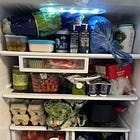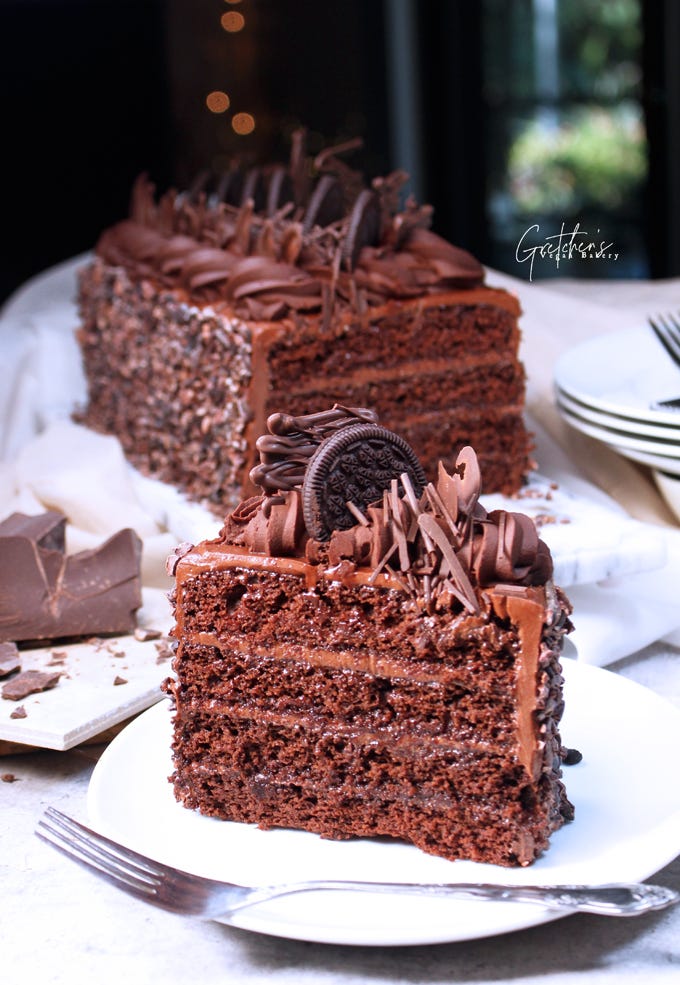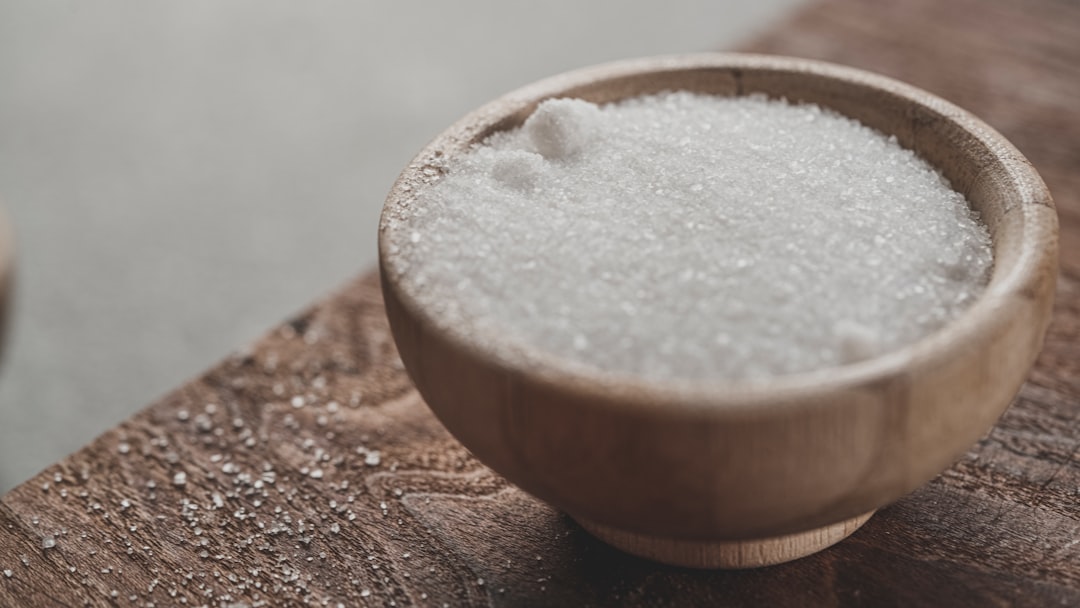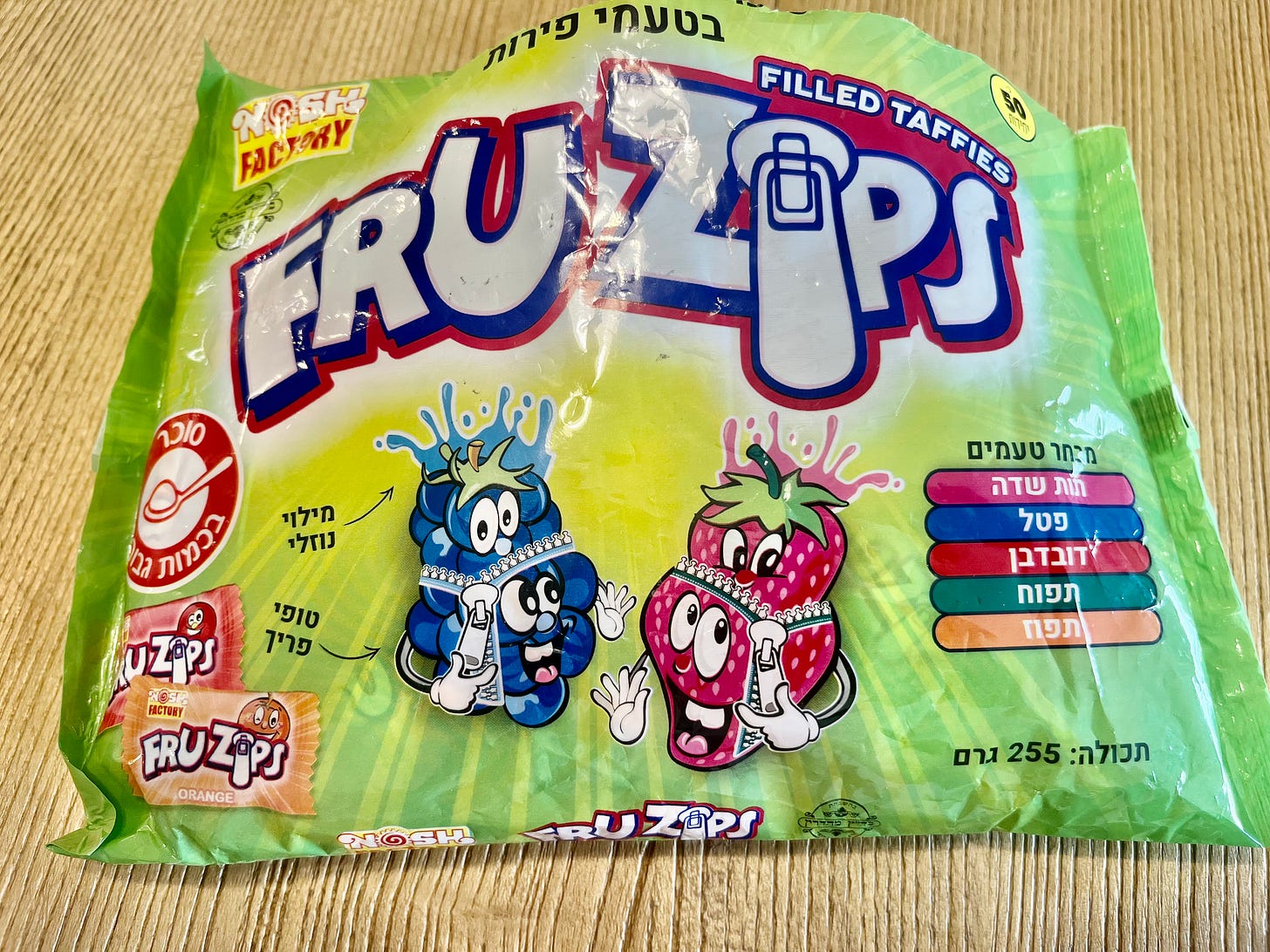Dear Healthy Jew,
Last week I proposed that we eat real food: products which were recognizable as food to our great-great-grandmothers, eventually spoil, don’t have unfamiliar or unpronounceable ingredients, and don’t make special health claims.
Eating real food is simple, but not easy. Unless you live in a hunter-gatherer society, chances are that most people you know are ingesting food-like substances with unmitigated relish. Perhaps you also do, and although deep down you’d like to trade strawberry ice cream for actual strawberries, you know it just isn’t happening. From within and without, we are bombarded by habit and temptation to sacrifice our food’s reality – and by extension our own reality – on a scrumptious altar of seven-layer chocolate fudge cake.
It's a problem, and I don’t have an easy solution. Insightful awareness of the emotional and spiritual meanings of unreal food can be helpful, as I contemplated a while ago regarding sugar.
Today I’d like to share a strategic compromise.
If foods were rated as good and bad, then I’d be ethically obliged to eat all the good ones and none of the bad ones. Eating even one bad food would be a sin of sorts; I can find healing and atonement, but only through uncomfortable withdrawal and repentance. I’ll have done wrong even if I eat only a little bit of the bad food, and even if the food is only a little bit bad, although my iniquity would be lighter - akin to stealing instead of murder.
But in truth there’s nothing inherently wrong or bad about these objects. For that reason, ingesting them in small quantities won’t harm me at all. They’re just not real food. Therefore, if I regularly eat lollipops for lunch instead of lettuce, then I too will not be really healthy and alive. And that would be a wrong and bad direction for me to choose.
Yet forcing myself to eat only perfectly healthy food without enough self-discipline and supportive surroundings isn’t either real, and, consequently, isn’t either good. Unrealistic resolutions, fervent as they may be, won’t provide me with lasting health, because I’ll probably quickly crash and burn, and if not then I’ll be that oddball who sneers at everyone in the candy aisle of the supermarket. Neither outcome is healthful in the broader picture.
How can we realistically eat real food, choosing to be real people that are living real lives?
Thankfully, health results from balanced living, not perfect living. Balanced living includes responding wisely to the realities and requests of the world and body I live in, navigating the middle road through all possible extremes. Therefore, in a world where eating only perfectly healthy food means detaching from polite society, living in balance can require eating some food-like substances in order to accept and embrace myself and the community.
I don’t mean to forget it all and eat food-like substances all day just because that’s the dubious reality of the modern world. My point is that understanding health as balance of body, mind, and spirit puts the suggestion to eat real food in the larger context of real life, urging me to balance the importance of eating real food with other important elements of physical and mental health. Although food-like substances aren’t the core of my diet, eating a few of them, once in a while, can be important for my overall health.
Michael Pollan’s guidelines for real-food identification help me decide what concessions to happily make. Pure food-like substances, such as cotton candy and Coke, are built primarily out of sugar and flavorings that keep me coming for more. It can be hard, perhaps impossible, to eat them regularly without losing healthy balance and displacing real food from my diet.
Instead, I prefer to choose from the many common almost-real foods that mostly meet Michael Pollan’s requirements for real food, at least to a degree.
Here’s some common examples (in no particularly order), all referring to simple, unflavored varieties:
Potato and corn chips
Bamba (a common Israeli snack made from puffed corn and peanuts)
Falafel
Pretzels
French fries
Cheerios and corn flakes
Dark chocolate
Puffed grains
(some) Granola bars
Popcorn
Pasta
Bread and pizza (especially homemade)
Our ancestors wouldn’t recognize the refined oils, flour, and sugar in these foods. But they would know their primary ingredients: potatoes, corn, peanuts, oats, cocoa, wheat, tomatoes, and cheese. Although not everything in this list strictly spoils, most dry out quickly, especially those without preservatives. Most of these products’ ingredients are familiar and pronounceable (which is part of why it’s better to bake at home). And they don’t make health claims, except for the breakfast cereals, which wouldn’t be breakfast cereals without them.
Also notice how sugar and its derivatives aren’t the first ingredient in any of these items. Don’t take that for granted.
Allowing almost-real foods onto my plate can make the difference between me being a deprived, friendless recluse and a regular guy who cares about his health. I can eat at most events and restaurants, even some fast-food venues. When I don’t have time to prepare a perfectly healthy lunch, or am not in the mood for salad and beans, I’ll grab a can of tuna (yes, sometimes even in soy oil) with potato or corn chips, together with the odd vegetable lying around the fridge. If we’re down at the park with the kids and running late for supper, I’ll join the crew in sharing a bag of Bamba.
Nevertheless, most days I prefer to eat completely real foods: fresh fruits and vegetables, nuts and seeds, sardines and beans, some meat and chicken. There’s nothing like them for health and balance. Yet I don’t lose much, if anything, by letting the odd potato chip cross my lips. Whatever harm may be caused by its refined oils will surely be offset by cultivating emotional freedom and social connection, and I’m not totally relinquishing reality in the process.
One Suggestion: Eat some almost-real foods. They’re good for your health.
One Question: What almost-real foods work for you? What differences do you notice between them and pure food-like substances?
Thank you for reading Healthy Jew.
Here are 2 great paths to continue the journey:
Also check out this intro and index to explore hundreds of posts about our 3 Healthy Jew topics: Wellness with Wisdom, Land of Life (Israel), and Sensible Spirituality.
Finally, always feel free to reach out here with any comments, questions, or complaints:
I look forward to hearing from you!
Be well,
Rabbi Shmuel Chaim Naiman
Please note: All content published on Healthy Jew is for informational and educational purposes only. Talk to a qualified professional before taking any action or substance that you read about here.













Thank you, Shmuel; this makes me feel better about eating (vegan) burgers and fries for dinner the past three nights! 😉